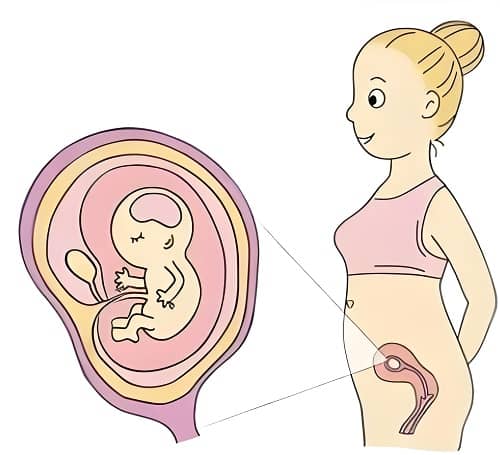Table of Contents
- Overview of Pregnancy in the Third Month
- Ultrasound Examination (NT Scan)
- Routine Check-Ups
- Specific Blood Tests
- Thyroid Function Test
- Genetic Counseling and Prenatal Screening
- Maternal Health Education and Guidance
Overview of Pregnancy in the Third Month
Pregnancy in the third month (9-12 weeks) marks the transition from early pregnancy to the second trimester. During this stage, a series of carefully designed check-ups will be conducted to ensure the health and safety of both mother and baby. These tests not only provide detailed monitoring of fetal growth and development but also comprehensively assess the mother’s physical condition, laying a solid foundation for ongoing pregnancy management. Below are the check-ups and their importance during the third month of pregnancy (weeks 9-12):

Ultrasound Examination (NT Scan)
Between weeks 11 and 13+6 days, the NT scan becomes the focal point of prenatal care. This examination measures the thickness of the nuchal translucency (NT) at the back of the fetal neck to assess the risk of chromosomal abnormalities, particularly Down syndrome. The precision of the NT scan makes it a crucial tool for early fetal health screening.
Routine Check-Ups
- Blood Pressure Measurement: Performed at each visit to monitor the mother’s blood pressure and prevent pregnancy-induced hypertension.
- Weight Monitoring: Regularly tracking the mother’s weight gain to ensure it is within a healthy range and does not negatively impact the baby.
- Urinalysis: Tests various indicators in the urine, such as protein, glucose, and white blood cells, to screen for urinary tract infections and gestational diabetes.
- Blood Routine Test: Evaluates the mother’s anemia status, infection risk, and blood clotting function, providing important reference for pregnancy care.
Specific Blood Tests
- Liver and Kidney Function Tests: Assesses the liver and kidney functions to ensure they can handle the metabolic changes of pregnancy.
- Blood Glucose Screening: For mothers at high risk of gestational diabetes, glucose screening or an oral glucose tolerance test may be conducted to detect and manage blood sugar levels early.
- Infectious Disease Screening: Includes tests for infections such as hepatitis B, syphilis, and HIV to protect both mother and baby from potential transmission.
Thyroid Function Test
Given the potential impact of thyroid dysfunction on fetal neurological development and cognitive function, thyroid function tests are necessary to ensure the mother’s thyroid is functioning properly.
Genetic Counseling and Prenatal Screening
For mothers with a family history of genetic disorders, advanced maternal age, or other high-risk factors, genetic counseling and prenatal screening may be recommended to assess the risk of genetic diseases in the fetus.
Maternal Health Education and Guidance
During the check-ups, healthcare providers will also offer health education and guidance, covering aspects such as pregnancy nutrition, exercise, and psychological adjustment. This helps mothers adopt a scientifically-based lifestyle during pregnancy and promotes the health of both mother and baby.